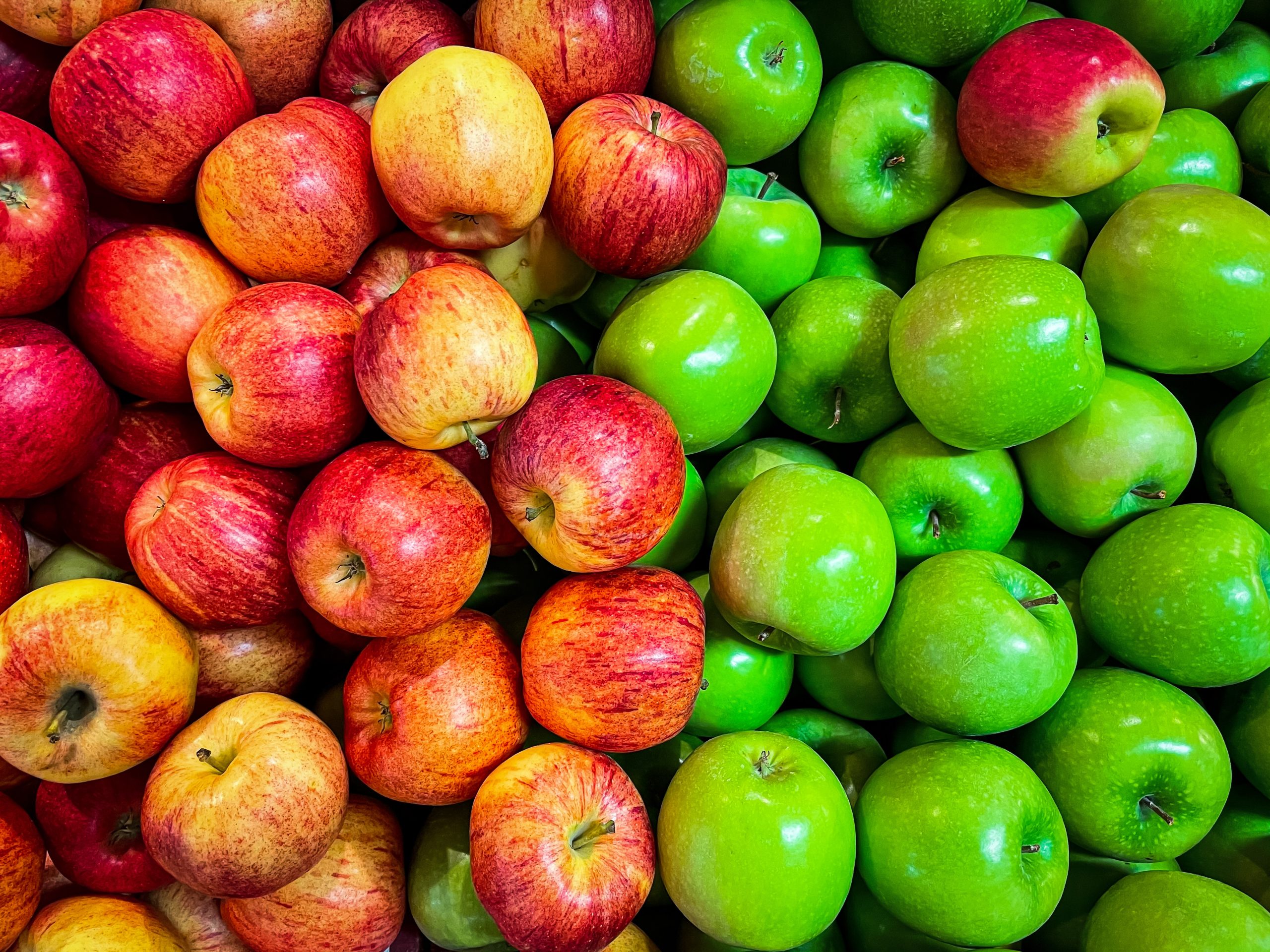Apple Grades, Tips, Facts
Grades, Nutritional Facts, and Handling Tips
Grades
The U.S. Department of Agriculture (USDA) established apple grades in 1923. USDA currently has three grade standards: U.S. Extra Fancy, U.S. Fancy, and U.S. No. 1.
The Washington State apple industry has two additional grades, Washington Extra Fancy (a higher standard than U.S. Extra Fancy) and Washington Fancy (a higher standard than U.S. Fancy).
Idaho apples are packed by standards that exceed USDA standards.
Apples are packed into 40-pound cardboard shipping containers according to their grade size. The largest apple size is 48, meaning 48 apples of this size will fit into a 40-pound carton. The smallest size is 216, meaning that 216 apples of this size fit in a carton.
Source: US Apple Association
Apple Nutrition Facts
Apples are a rich source of phytonutrient (plant-based) antioxidants.
Apples and apple juice are two of the best sources of the mineral boron which may promote bone health.
Apples contain natural fruit sugars, mostly in the form of fructose. The natural sugars help to maintain steady blood sugar levels because they are released slowly into the bloodstream due to apple’s high fiber content.
Click on the link below to download this information and print an informative full-color sheet.
Idaho Apple Grades, Nutrition Facts, and Handling Tips
Apple Equivalents
One Pound = 4 small apples, 3 medium apples, or about 2 large apples
One 9″ or 10″ pie = 2 1/2 pounds (4 to 5 large, 6 to 7 medium, or 8 to 9 small apples)
One pound sliced = about 2 3/4 cups
One pound diced = about 3 cups
Peck = 10 1/2 pounds
Bushel = 42 pounds
What is a serving?
One medium apple
Six ounces of 100% apple juice
1/2 cup applesauce
Apple Sizes
Large = 3 3/4 inches, 2 cups sliced or chopped
Medium = 2 3/4 inches, 1 1/3 cups sliced or chopped
Small = 2 1/4 inches, 3/4 cup sliced or chopped
Helpful Handling Tips
- Select apples without bruises, and handle them gently to prevent bruising.
- Apples that are firm to the touch have the best flavor and crunchiness.
- Store apples in the refrigerator to slow ripening and maintain flavor. Properly stored refrigerated apples can have a shelf life of 90 days or more.
- Store apples away from strong-smelling foods to prevent them from absorbing unpleasant odors or flavors.
- Wash individually-sold apples in cool water before serving.
- Coat apple slices and dices in a mixture of one part lemon juice to three parts water or in vitamin C fortified 100% apple juice to deter browning.
